Credits:Biovision-Infonet
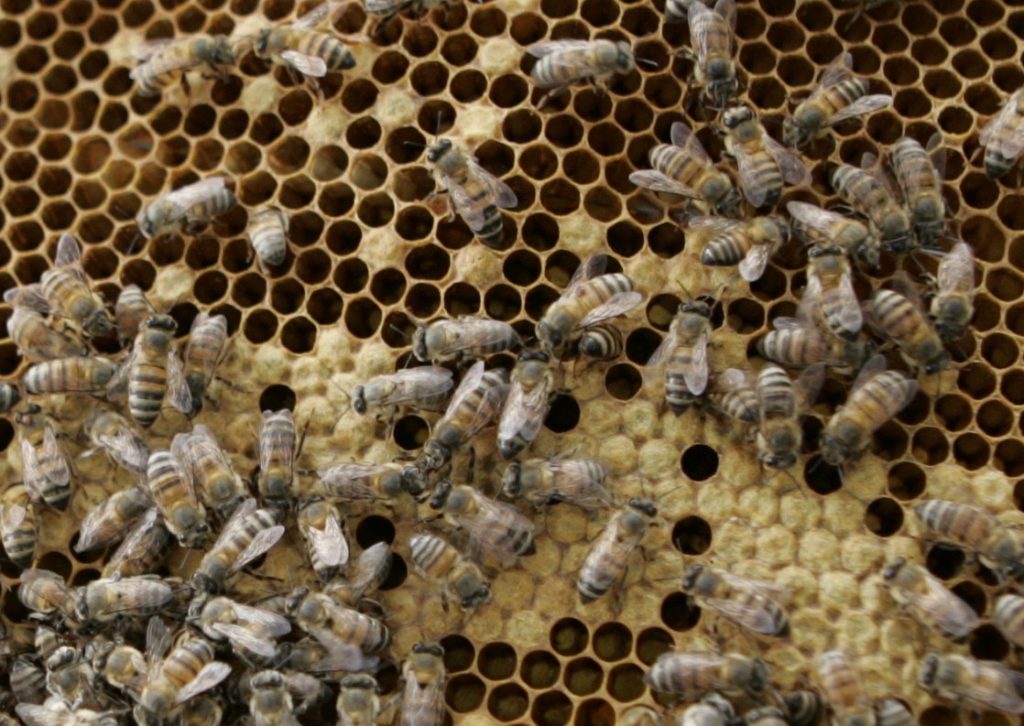
(c) A. Bruntse, Biovision
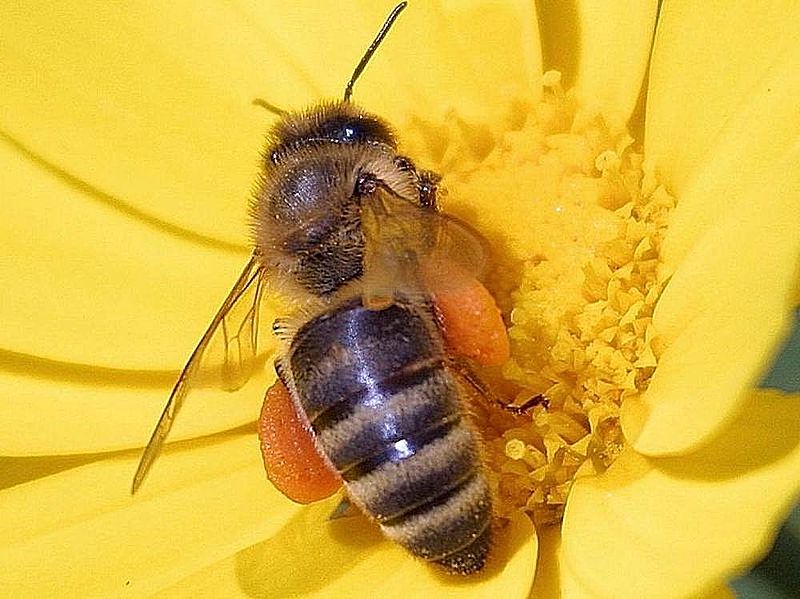
(c) Jon Sullivan, Wikimedia
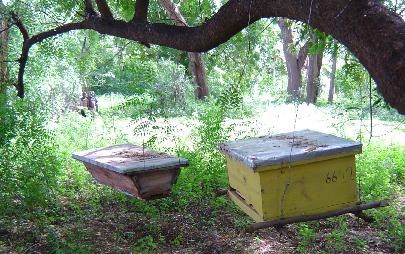
(c) Thomas Carroll, Kenya (2006)

(c) Thomas Carroll, Kenya (2006)
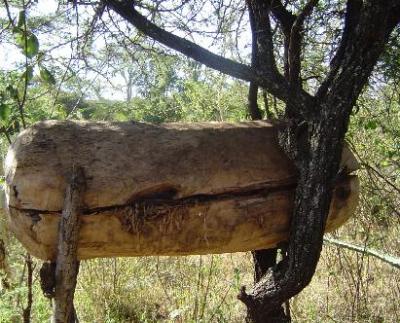
(c) Thomas Carroll, Kenya (2006)
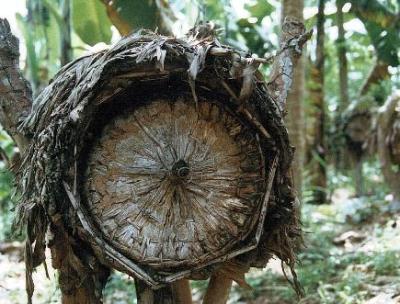
(c) Thomas Carroll, Kenya (2006)
Introduction
Beekeeping in Africa has been practised from time immemorial. The traditional beekeepers use simple hives often made from hollowed logs. The empty hives are placed high up on trees, become occupied by passing swarms and in due course are harvested by the beekeepers. This method of honey harvesting may destroy the colony and and result in a poor yield of low quality hive products. In organic agriculture this is not viewed as fair to the animals and should therefore be avoided. Fortunately, hives and methods of bee-keeping have improved with time which allows harvesting without destroying the bees. It is important to keep in mind that bees are not only honey providers: they are living individuals and pollinators, which are very crucial to our production of food in general. On a global scale, a third of our food is dependent on pollination, and bees are very important for this.
What are the benefits of bee keeping?
Bee farming has many benefits. It has the following advantages over other farm enterprises:
- Bees are essential pollinators of plants thus playing a big role in biodiversity and improvements of crop yields. This is particularly valued in organic farming
- Requires little land
- Cost is low compared to other farm enterprises
- Does not interfere with other agricultural enterprises in terms of resources
- Labour required is low
- Many products can be manufactured for supplementary income
- Encourages environmental conservation
- Most hive products have a therapeutic value
Bees in Organic Agriculture
There are two major aspects to remember when considering the role of bees in organic agriculture: the role in the whole ecosystem and the animal welfare aspects.
An organic agricultural system is dependent on natural processes. Pollination and the interaction between the different plants and the insects are crucial for the well-being of the ecosystem. The diversity in the system gives bees the best possibilities for a fair living, as opposed to a mono-cultural system where flowers are only available in a very limited time during the year.
Animal welfare aspects in organic agriculture live up to the organic principles of ecology, health, fairness and care. This also is crucial to the bees. One of the fascinating and interesting thing about bees is that they are individuals, but together they form a colony which can almost be regarded as “the organism”. It is not fair to the organism to split it in violent ways. in some cases, it can be a long term strategy to replace a queen, or to divide a hive, but mostly the natural processes in the colony will guide what the bees do in terms of swarming and establishing colonies. This is the gentle, care that we can give the bees, when we as humans take them into our households and live from their products: give them the best living conditions, and let them guide and choose as much as possible. The following issues related to bee welfare can therefore be emphasised:
- Bees have a unique way of communicating and navigating, and it is not fair to them to move them over large distances. Like all animals, a stable life in surroundings where they can navigate and build up resistance and abilities to manoeuvre in these particular surroundings, is the most fair and healthy way to keep them. If the surroundings are not favourable for them, they will move themselves.
- Health is also connected to stability. The massive migration of bee colonies seen in the agriculture-industry in some countries seems to be a very efficient way of exchanging diseases. The massive bee death problem seen in USA and parts of Europe is multifactorial, but strongly linked to the way in which bee colonies are violated, divided and moved around.
- African bees are regarded as some of the most disease resistant and strongest bee races – keep them and maintain them well in Africa, and do not import bees based on arguments that other bee races can be more efficient.
- Sometimes, the healthy honey of the bees is replaced purely by cheap and less healthy sugar. As organic bee keeper, it is fair to consider that bees should keep some of the honey, and/or honey can be harvested when there are still plenty of possibilities for the bees to take and make comb and honey.